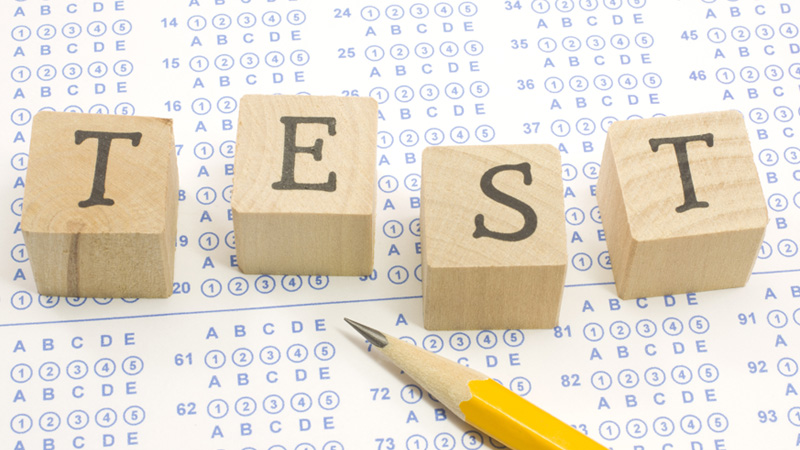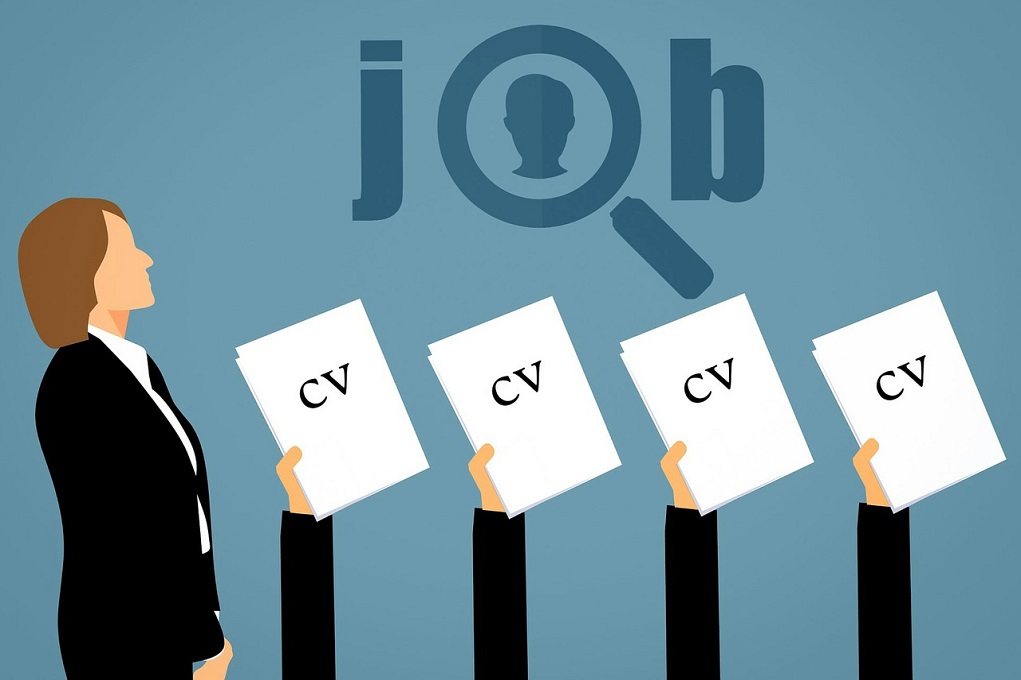What to Expect from Pre-Employment Personality and Skills Test.
Many young graduates seeking employment have been swept by frustration securing a job. Often, some have expressed displeasure in the hiring process. One aspect that has left many employees still talking about is the area of pre-employment Personality and Skills Test. Some said it is an unbalanced and unfair approach by recruiters and organizations.But no matter how hard you try to change the process, the pre-employment personality and skills test has come to stay. So, let’s educate ourselves on pre-employment tests and what you can expect from such tests.
Types of Pre-employment Personality and Skill Test
For a precise understanding, we will be looking at some of the types of pre-employment Personality and Skill Tests.
1. DISC Personality Test
Millions of organizations have adopted this style of pre-employment Personality and skill test. This test is fast and requires a direct response from candidates. It checks and estimates a candidate’s DISC profile based on the day-to-day behaviour of the candidate. The DSC personality test addresses four key areas. These include Dominance, Influence, Steadiness, and Compliance.
Due to its spread and recognition within the Recruitment cycle, organizations have seen it as a tool to raise self-awareness, improve teamwork, and build team relationships.
How is it measured?
The DISC measurement contains a more robust measure of a candidate’s behavioural trait. Of the four broad areas, it is subdivided into eight scales which include;
- D signifies strong-willed, driven
- Di or iD represents dynamic and bold
- I represent lively and talkative
- iS or Si indicates trusting and caring
- S denotes patient and soft-hearted
- SC or CS indicates soft-spoken and careful
- C signifies reserved and unemotional
- CD or DS means disciplined.
From the DISC, the recruiter can easily tell the segment an employee belongs to after the test using the scale. It places the candidates into different parts of the segment according to their characteristics or behaviour.
2. The Caliper Profile
Employers are always concerned about the level of the behavioural tendency of employees on the job. The Caliper profile has addressed these concerns. The Caliper profile is a set of assessments drawn to predict employees’ motivation on the job.
Often, it might test candidates in areas such as leadership, communication, interpersonal dynamics, decision making, problem-solving, and management skills. With this personality-type test, recruiters and employers can see how well the candidates can fit into the job.
How is it measured?
Candidates must provide answers either through a set of multiple-choice questions or true/false. Solutions presented using a percentage analysis makes the candidate understands his strength and weakness in different areas.
3. The Hogan Personality Inventory (HPI)
The Hogan Personality Inventory test can be used at any level of staff selection criteria. These tests focus on how we relate to others at our best. With this test, the Recruiter can understand how people work and interact in day-to-day activities in a workplace.
How is it measured?
The HPI measures seven primary scales. These include Adjustment, Ambition, Sociability, Interpersonal, Prudence, Inquisitive, and Learning Approach. This test is actual or false questions that are 206 in numbers and last for 20 minutes.
4. The SHL Occupational Personality Questionnaire
The SHL Occupational Personality assessment gives recruiters and employers insight into an individual’s behavioural style and how it will impact their work performance. This test evaluates up to 32 personality traits of an individual attribute spread across seven subcategories.
How is it measured?
This test measures three broad areas of a person’s Personality – Relationship with personal (inter-personal), Thinking style, and feelings and emotions.
5. The Myers-Briggs Type Indicator test
The Myers-Briggs Type Indicator test has long been in use. Students and researchers first used it to help understand a better person. But as its awareness grew, it was later adopted as a hiring tool. This test enables you to measure a candidate’s personality while paying attention to their strength and weakness.
How is it measured?
This test helps to measure four distinct categories. These include: introversion or extraversion, sensing or intuition, thinking or feeling, judging or perceiving.
Why do Employers Use the Pre-Employment Personality and Skills Test?
1. Insights into a mix of talents: Recruiting for any position takes a lot of processes, especially when addressing the right level of expertise needed for the job. The pre-employment personality test helps the recruiter gain insight into the candidate’s capability if he meets the company’s requirements. Using this system, employers can avoid mistakes during the hiring process.
2. Reduce biased decision making: Transparent recruitment process is one of the primary goals of the talent acquisition process. The pre-employment personality and skill tests help HR personnels make accurate decisions and reduce a biased approach in the selection process. It can also increase the workforce’s diversity while maintaining a high retention capacity of employees.
3.To see if a candidate would fit into the company’s workplace culture: Every organization has a pre-defined company culture and workplace style. In an organization that wishes to uphold its workplace culture in its hiring process, the pre-employment personality and skill test can help see if a candidates fit into the company’s workplace culture.
For example, companies whose workplace cultures are fun, easy-going, and team-based might not be a good workplace for serious-minded and hostile people. With these criteria, companies can quickly get the best fits.
Benefits of Taking Pre-Employment Personality and Skills Tests
The pre-employment Personality and skill tests have not been only helpful to recruiters and HR departments but also employees and job seekers. Here you will find a list of benefits employees and job seekers can derive from taking the Pre-Employment Personality and Skills Tests.
1. Keeps track of your Cognitive and Personality Abilities
There are two ways you can test your personality ability. It can either be through a one-on-one meeting with a psychology expert or using a prepared online template for cognitive tests. The former might be expensive, while the latter is available for free.
Accessing your cognitive ability can help you keep track of your cognitive functions and help you conclude a case scenario. Many employees and candidates who once took the test with an organization are encouraged to take it to measure their cognitive abilities.
2. Acquaint you with your level of hard and soft skills.
Today, most hiring processes include tests for hard and soft skills. When you engage in hard and soft skill testing processes, you can easily see areas that need improvement and work towards accomplishing your goals.
3. It builds a better confidence level among employees and job candidates
You can never know how many areas your strength lies in unless you have successfully taken the pre-employment personality and skill test. Most candidates have been bewildered when taking the pre-employment test because they were not well briefed on the necessity for taking the test.
But for candidates who have seen the areas where their strength lies, this can be an avenue for morale boosters. Engaging in the pre-employment test can help sustain your ConfidenceConfidence while working on other lapses.
4. Enhance better communication
Many organisations have placed effective communication as the driving force for their establishment. They have been able to invest their time and efforts in how they can foster effective communication between staff and employees. So, one way by which communication can be effective is to engage employees on a pre-employment test to check their level of communication skills. This aspect has been able to help employees to keep in check and enhance their communication skills within and outside the organization.
5. Gives you a brief on the organization’s culture
This is one aspect that Pre-Employment Personality and Skills Tests can help candidates who want a glimpse of the organization. Most times, Pre-employment Personality and Skills Tests are from questions that depict the organization’s culture.
Usually, candidates can quickly tell what the organization stands for through pre-employment personality and skills test questions.
6. It helps improve your leadership traits
Engaging in a personality and skill test can help you better understand areas where your strength lies. When you have insight into these areas, you can avoid shortcomings and perfect your leadership qualities within the organization.
How to Pass Pre-Employment Personality and Skills Test
If passing the Pre-employment personality and skills test has been difficult for you, then you should read the tips below on how to ace it effectively.
1. Honesty
This part is a big deal for all candidates regarding the role applied. While this might not be so result-oriented, it is advised you provide answers in areas that need an honest approach. Be mindful that most of the questions are linked and can easily present to recruiters in areas with guessed answers.
2. Prepare beforehand
The best strategy for passing the pre-employment personality and skills test is to prepare before the test. In this approach, you can start with a checklist of the following;
- Research on the industry the organization is currently focused
- Study the goal, mission, vision, and culture of the organization.
- List all your soft skills.
- Visit the company’s online profile to learn about them.
- Details of your employment history and background
- Get past questions from different cognitive areas such as Numerical reasoning, Verbal reasoning, Logical reasoning, Mechanical reasoning, and Spatial Awareness.
- Practice using online resources where you can do your evaluations immediately.
- Understand the job responsibilities and roles while you prefer improvement in crucial areas.
The above checklist can help you navigate the pre-employment personality and skill test before the date.
3. Don’t play down your confidence.
Your confidence level plays a significant role in your Pre-employment Personality and Skill tests. If your test is online-based, you should work on your confidence level before the test. Going into the exam test with high confidence can eliminate fear and anxiety while taking the test. And for offline takers, confidence is what many recruiters check during pre-employment tests. Your manner of approach to questions from recruiters can depict if you are prepared for the job or if you are not sure of your skills and background.
4. Practice with the right guide
Nowadays, people hardly prepare for a job invite without past questions. So, if you have been studying for pre-employment personality skill tests without the right guide, you are probably doing it the wrong way.
Practising with the right past questions yields results beyond what you can imagine. It limits you only to essential questions that are most likely to occur during the test while you focus on relevant topics before the test. You can do multiple revisions while you keep improving on your lapses.
5. Approach all questions with different answers
Cognitive and personality questions are most times used as a judgemental approach to questions. It might vary from agreeing, strongly agreeing, disagreeing, or even on a scale of 0 to 10.
You should have it at the back of your mind that every Recruiter is twice as savvy as you are. So, it’s best not to play a clever game on them or cheat the system.
When supplying answers, you should avoid clustered answers only in one direction. You should pick your answers with diverse views and opinions. All questions asked by the recruiters all require different solutions.
6. Don’t be in a haste
Many candidates are usually in haste when answering personality skill tests. Ensure you understand the questions carefully before giving an answer. Remember that in personality trait tests, your opinion is very important.
Overall, as Pre-Employment Personality and Skills Test continues to gain grounds, it’s important to stay up to date with the latest trends.









Leave a Reply